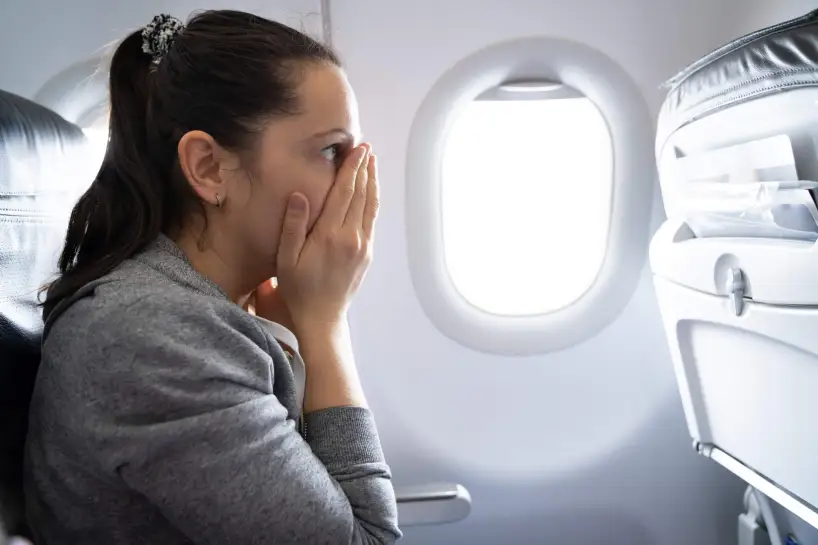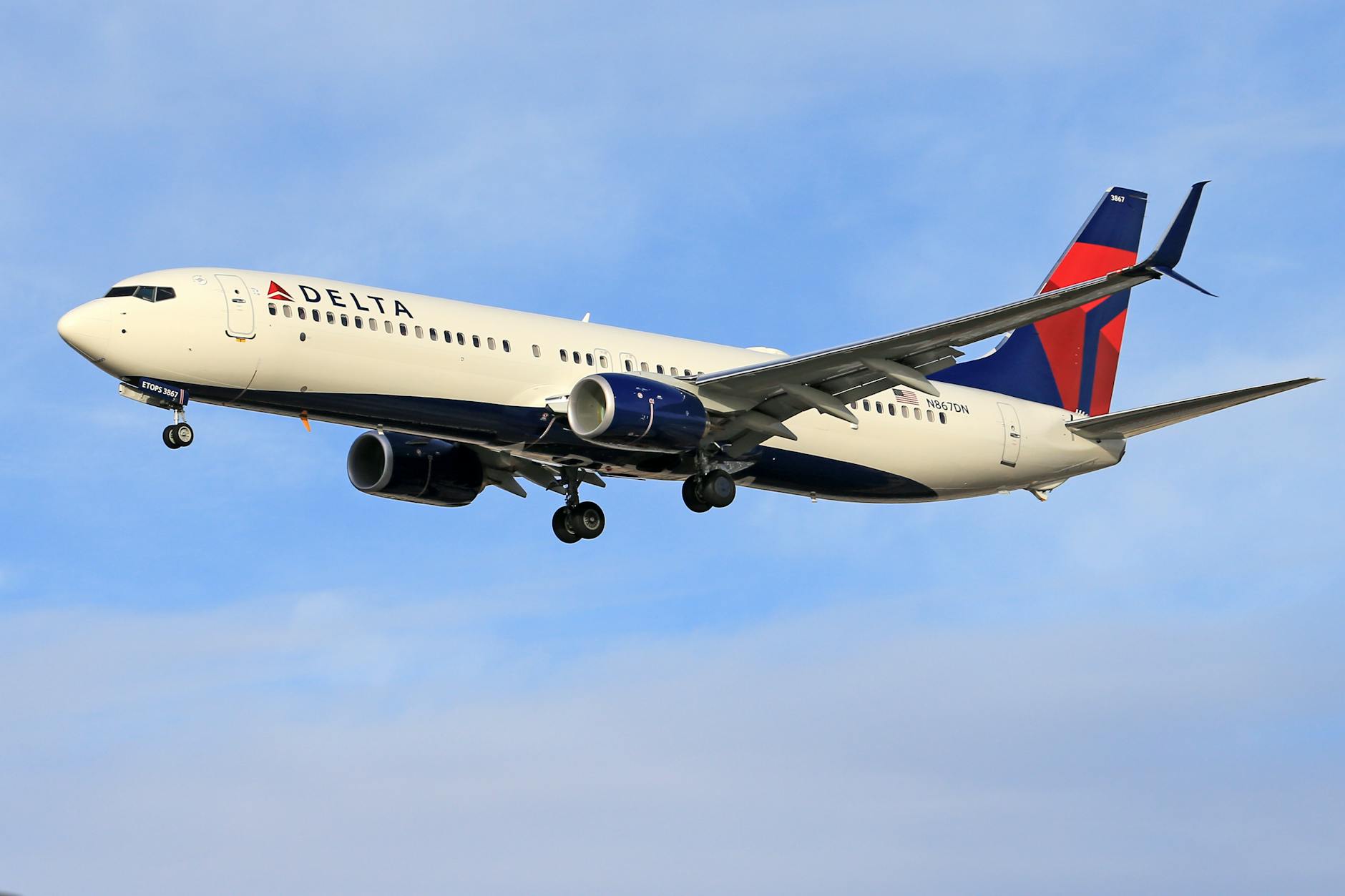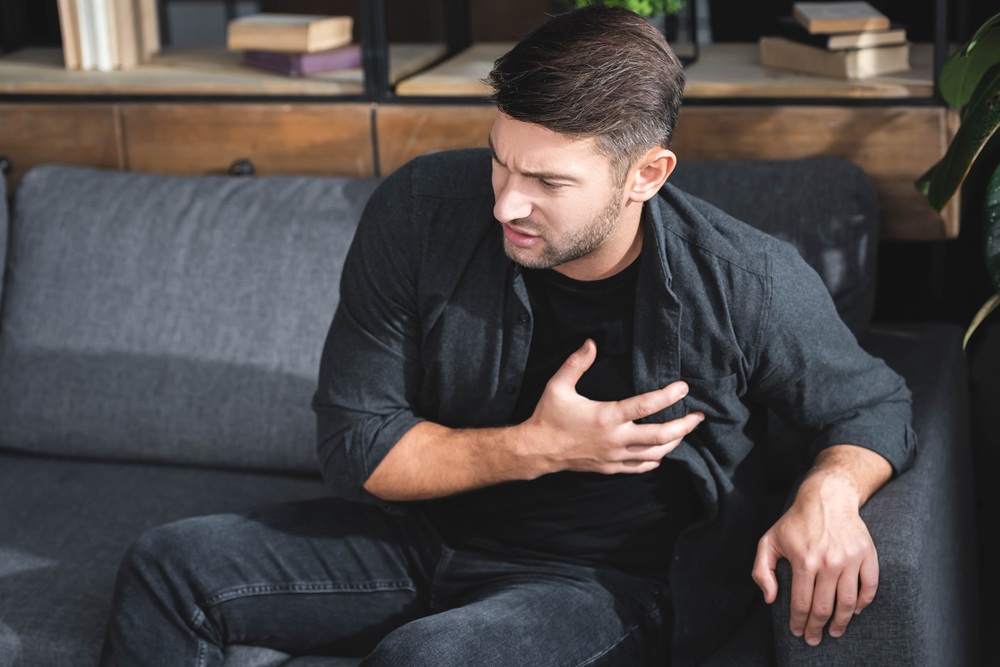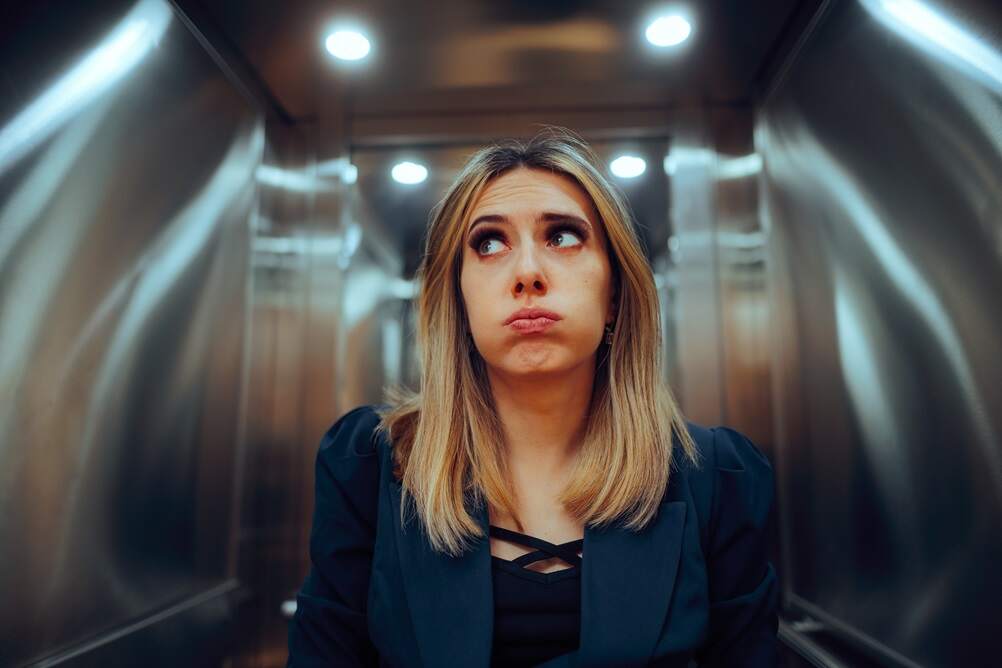Planes are one of the most common places to have panic attacks. Whether you’re having a panic attack right now, or are generally vulnerable to them, read on.
Last updated: August 12, 2024
Panic attacks are more likely to happen when your anxiety levels are high and you feel trapped. If you’re sitting on a plane that’s still boarding then you’re not fully trapped, but getting off the plane would be difficult and create problems. If the plane has taken off, of course, leaving is no longer an option. Fortunately, a panic attack on a plane can often be managed — with the right mental approach.
Having a Panic Attack on a Plane? Here’s What to Do to Get and Stay Calm
If you’re having a panic attack, it is critical to remember that although terrifying, panic attacks are harmless and temporary.
Harmless
Panic attacks happen because your sympathetic nervous system has been activated and is functioning to prepare you to face a threat. Your nervous system would do the same thing if you came face to face with a bear in the woods. The difference between that situation and yours is that right now you’re not seeing any obvious external threat. Your attention thus goes to your physical sensations, which only enhances your sense of alarm.
You may find your breathing is quick and shallow, or your heart is beating faster than normal, or you may be sweating, trembling or feel nauseous. The amount of oxygen in your bloodstream has increased, which can also lead to some unusual sensations. This is all part of the process of your body preparing to fight or to flee. You probably want to get off the plane right now – that’s the flight part of the fight-or-flight response. It doesn’t mean that you need to get off the plane – just that your fight-or-flight response is active. Your brain is sending you the message that you need to escape, but it’s a false alarm.
Temporary
Your sympathetic nervous system is active right now if you’re having a panic attack on a plane. Eventually, another part of your nervous system (called the parasympathetic nervous system) will get activated. This will slow down and later stop the fight-or-flight response you’re having right now. Your breathing rate will slow, your heart rate will decrease, the rate of oxygen in your bloodstream will gradually return to normal, and you’ll feel like yourself again. It’s inevitable. The only question is how long it will take.
Action steps
First: Try to slow your breathing. You may not be able to, but it can be helpful to try. Use a stopwatch or timer if you have one — try to make your inhalations and exhalations one second longer than they are now. After a while, make them two seconds longer, and so on. If you can get your inhalations and exhalations up to 4 or 5 seconds long, you’ll likely see some improvement in how you’re feeling.
Second: Ask yourself exactly what you’re afraid of right now. Common fears people have during panic attacks include fears of:
- Losing control
- Passing out (fainting)
- Heart attack
- Death
- Vomiting
- Going crazy
Third: If you’re able to identify the fear, ask yourself what evidence you have that this will happen. For example, if you’re afraid you’ll lose control, ask yourself, have you ever lost control before? Follow that with other questions such as, how bad was that when it happened? How similar was that situation to this one? Would other reasonable people agree that your fear is a realistic or likely possibility?
Weighing the facts can be an important part of changing your self-talk during a panic attack. Sometimes it makes sense to panic. But if the facts don’t warrant panicking, it’s good to make sure your thinking is grounded in those facts. That will help you stay calm.
Fourth: Lastly, once your panic attack is over or you’re off the plane, do something to prevent future panic attacks. There are many ways to reduce your risk of future attacks. Don’t rely on simply hoping they won’t happen again as your strategy. Here some smart options:
- Take up meditation.
- Consider a consultation with a mental health professional who specializes in anxiety and panic.
- Consider a consultation for anti-anxiety medication.
- Resolve to drastically cut caffeine intake before you fly (if you had a lot of caffeine this time)
- Limit alcohol use the day and night before you fly — hangovers increase the likelihood of panic attacks.

What Happens If You Have a Panic Attack When Flying?
If you have a panic attack on a plane you may experience any of the following:
- pounding heart
- rapid breathing
- lightheadedness
- strong sense of foreboding or doom
- strong urge to get out of the plane
- trembling
- hot or cold flashes
- feeling of unreality
- fear of loss of control
- fear of passing out or vomiting
- fear of going crazy or dying
- fear of having a heart attack
- dizziness
It’s important to note that if you have one or more of the above symptoms, it’s not clear that you’re having a panic attack. Other medical issues can cause each of the above issues.
Why Do People Have Panic Attacks When Flying?
There are a few types of anxiety disorders that make you more likely to have a panic attack when you fly. Perhaps the most common culprit is panic disorder. Panic disorder is a tendency to experience panic attacks combined with a pronounced fear of having further panic attacks. Another condition that can lead to panic attacks on planes is called generalized anxiety disorder, which is a tendency toward worry. A third condition is aerophobia.
What is Aerophobia?
Aerophobia (also known as aviophobia) is a fear of flying that is impactful enough that it leads you not to fly or to experience moderate to severe anxiety when you do fly. Sometimes the cause of aviophobia is apparent (e.g., a negative memory involving flying) and sometimes it’s unclear why aviophobia develops. People with this condition often turn to medications or alcohol to cope with flying when they have to fly. Fortunately, there is effective therapy for aviophobia.
What Is the Best Way to Reduce Anxiety About Getting on a Plane?
If you tend to worry that the plane will crash even days before your flight, one technique that may help involves changing your self-talk. This type of anxiety often improves when you infuse some relevant facts into your inner chatter. For example, did you know that the National Safety Council states that in 2021 (the latest year for which data is available), major airlines “experienced no onboard fatalities and had a fatal accident rate of 0.0 per 100,000 flight hours in 2021.” The rate of fatalities in non-commercial flights was slightly higher, they note.
The recent past is usually a good predictor of the near future. This suggests that your odds of dying in a plane crash would seem to be virtually … zero. However, merely knowing that isn’t likely to help you feel less anxious about your flight. You’ve got to tell yourself these facts — over and over. Telling yourself just once will not be sufficient if you tend to worry about your flight crashing.
Typically, people who worry about their plane crashing think about that possibility over and over again. It happens thousands of times leading up to a scheduled flight. In order to counter that, you need to repeatedly and persistently remind yourself of the facts — that statistics show that your odds of dying in a plane crash are practically zero.
Medications used to make flying easier
Perhaps the most commonly prescribed medication for people who get anxiety during flights is benzodiazepines. This class of medications is relatively fast-acting and effective in the short term. Medications such as Xanax, Ativan, Valium, and Klonopin are examples of commonly prescribed benzodiazepines.
Benzodiazepines do have some disadvantages. Although often effective, they are habit-forming and do little to reduce the fear of flying on future flights. Additionally, doctors typically recommend that patients not use benzodiazepines in conjunction with alcohol, which is often used by people with anxiety when flying.
Summary
Whatever you decide to do, remember that panic attacks are typically preventable with the right treatment or strategies. If you’d like to find a cognitive-behavioral therapist who can help you overcome panic attacks, please contact us.










